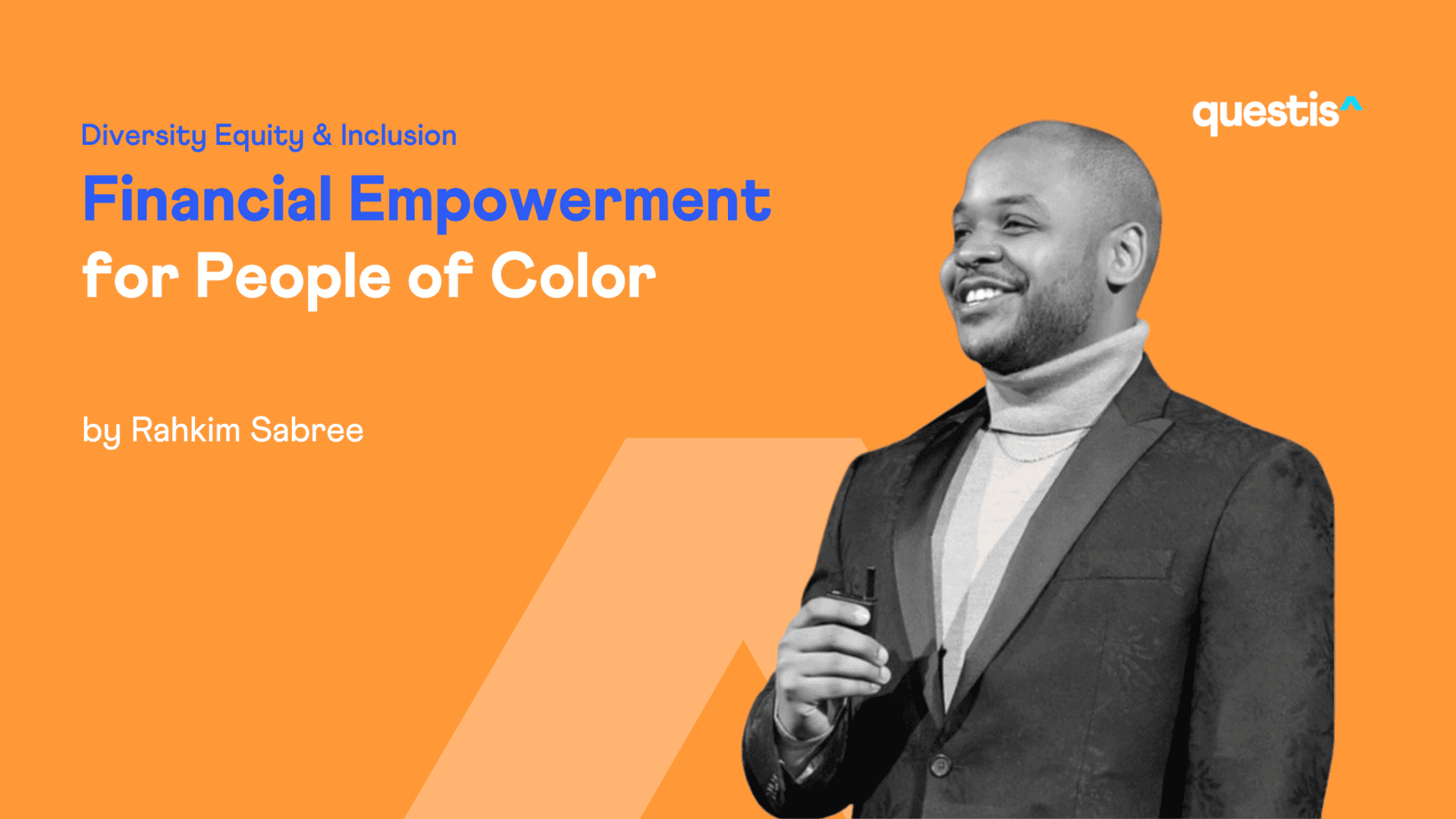Financial Empowerment for People of Color
Financial empowerment can be a challenging topic–especially with an audience of employees from different cultural backgrounds and experiences with money. In some communities, money conversations can be seen as taboo. While in others, discussions around money are commonplace.
The good news is that while there is no one-size-fits-all approach to personal finance, financial empowerment has more to do with how your employees feel about money than how much they are actually making–AND there are solutions out there to help them improve those feelings/their relationship with their money.
Financial Empowerment Looks Different For Everyone
Financial empowerment–different from financial literacy–means that you have the combination of skills, knowledge, confidence, and income to make life decisions with intentionality rather than scarcity or survival. Some families from low income backgrounds may not feel confident enough to discuss their finances. This in turn may have an impact on their comfort levels when it comes to asking for raises or negotiating their worth despite having the talent or skillsets necessary.
See also: What Does It Mean To Be Financially Empowered and How Does It Impact Productivity
Reflecting on my own experience as an employee, I’ve shared that when I started working in the banking field, I was overwhelmed with choices related to benefit selection such as 401k allocations and health-insurance plans. I found out a colleague made 15 cents more an hour than I did because they asked for it, and the bitter taste of a “don’t ask, don’t tell” culture around compensation prevented me from doubling back and asking for more. I can imagine others relate to the experience of simply not knowing:
- What to do when you don’t make as much as your coworkers
- How to ask for a raise
- How to navigate being overwhelmed
Assuming that employees come to the workplace equipped with the financial knowledge and confidence to maximize their income is a huge missed opportunity for employers looking to hire and retain talent. That lack of confidence can contribute to job hopping, lack of personal fulfillment, and negative impacts on mental well being.
Providing tools, resources, and accountability through a properly structured financial wellness program can help to alleviate financial stress and identify solutions that allow for employees to control their finances, create a financial cushion, achieve their financial goals, enjoy the present, and most importantly be seen for who they are, where they are.
A Missed Opportunity
I’ll never forget deciding that I wanted to buy a house after previously believing it wasn’t something I could do before 30. My mind swarmed with thoughts and emotions that frightened me. The constant “what if” scenario plagued my mind as I wondered if I made enough money, how I could make more, and what would happen if I ever lost my job. After making the purchase, I shared with a manager I reported to that I had just purchased a house and wanted to know if there were opportunities available for me to increase my salary. After being told that there weren’t, I shared that I would be looking for opportunities within and outside of the company. The manager took immediate offense and I was punished until my ultimate departure from the company.
See also: The Real Meaning of Financial Wellness
Had that manager taken the time to understand my financial concerns around homeownership and previously believing that it wasn’t something that was possible for me perhaps the conversation could have been more supportive. Perhaps if the company had a financial wellness program with a knowledgable coach that could identify and address issues of cultural sensitivity, first-gen homeownership, and financial literacy, I could have continued to excel in the current role until an opportunity was available for advancement internally.
Financial Empowerment Celebrates Our Differences
During the home buying process, I did have support from colleagues who were truly excited for me. Despite our differences in backgrounds, incomes, and perspectives, I was given personal references to real estate agents and lenders. Some of my colleagues even shared anecdotes from their own experiences of what to look for and what to avoid in my journey. In all of this, I felt seen and acknowledged. It was more than the technical how to’s financial literacy gives us. It was encouragement, demonstration, and the building of confidence through application.
About Rahkim Sabree
 Rahkim Sabree, CFEI is an author/columnist, speaker, and financial coach focusing on the pathways between financial literacy and financial empowerment. Rahkim is the author of the bestselling book “Financially Irresponsible” and has been published in Business Insider, The Grio, Black Enterprise, Entrepreneur, CEO World Magazine, and more. He can be reached via his website at www.RahkimSabree.com.
Rahkim Sabree, CFEI is an author/columnist, speaker, and financial coach focusing on the pathways between financial literacy and financial empowerment. Rahkim is the author of the bestselling book “Financially Irresponsible” and has been published in Business Insider, The Grio, Black Enterprise, Entrepreneur, CEO World Magazine, and more. He can be reached via his website at www.RahkimSabree.com.
